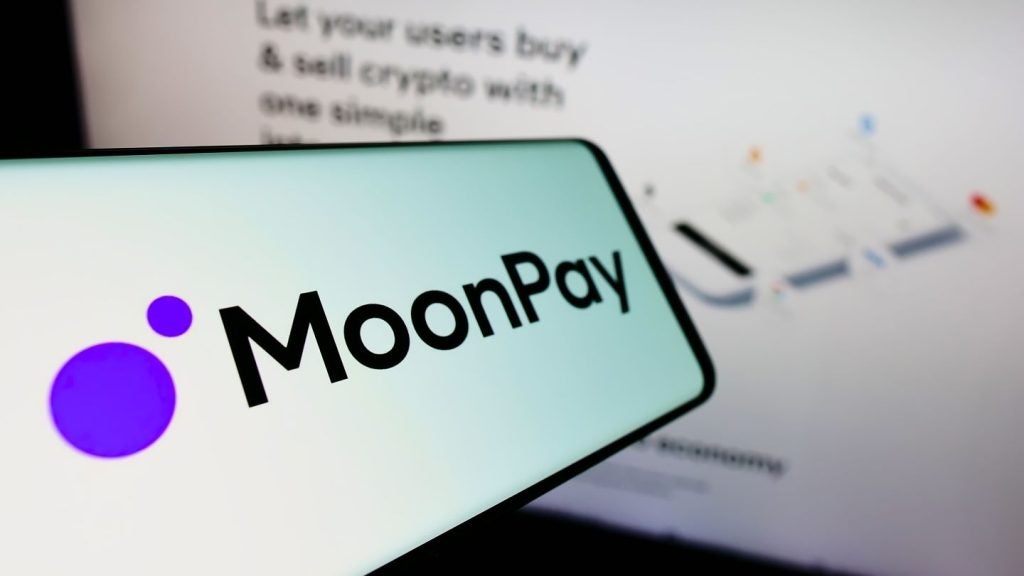This year’s Cartes event,
held in Paris on 17-19 November, showcased innovations in the cards
and payments industry. It was also notable for a buoyant air of
optimism among delegates, with many convinced the industry has
emerged relatively unscathed from recent economic turbulence.
John Hill
reports.
Cartes 2009 was attended by around
20,000 cards and payments experts from across the globe. Running
over three days on the outskirts of Paris, everyone from card
manufacturers to POS software designers showcased their new
products at the event.
Many of the major industry issues were
addressed throughout the conference, and much of the doom and gloom
from the global recession seemed to be curiously absent, as
attendees praised the event for being even bigger than last
year.
Security as always, was a hot topic and Kevin
Smith, senior vice-president of fraud management at Visa Europe,
explained how he thinks the fraud and security landscape is
changing.
“Fraudsters and criminal gangs are changing
their modus operandi, how they actually get their hands on card
data, and are moving from single cards and card numbers to multiple
compromises,” Smith said.
“Potentially hundreds of thousands of card
numbers could be at risk from hacking into systems, servers or
processors, and that is our primary cause of concern at the moment.
It seems that many cases of fraud relate back to significant data
compromises, be they in Europe or anywhere else in the world and
recently there have been some fairly high profile examples of
this.”
Fraud moves to new
environments
Smith explained how fraud is
shifting its focus across the globe.
“Where the fraud is now perpetrating, or
coming out of, is typically in environments that are not deploying
chip and PIN,” he said. “The reason for that is that markets like
the UK and France and many others across Europe have deployed chips
on their cards, at the POS device or in their ATMs, and so the
fraud in these typically face-to-face environments is half that of
other markets that haven’t yet adopted chip and PIN.”
“Chip and PIN has done exactly what it was
supposed to do. The vision back in the late 1990s of trying to move
to a critical mass of chip acceptance and chip cards across the
region is coming to reality, albeit having taken some time to get
there, with markets moving at different times and different speeds.
But as a European environment we truly are moving towards a
European state of chip acceptance.
“The fraudster by default is now looking at
the easier option. Chip has now made the face-to-face environment
more secure, so they are looking at the non-chip environment – they
are looking at card-not-present, e-commerce, mail order, telephone
order, or they are looking at where they can use the compromised
data in traditional or ATM or retail environments outside of
Europe, environments that aren’t chip environments.
“So we have actually got a number of key
challenges for our banks in Europe which is how do you continue the
rapid growth of genuine card usage on the internet, which is one of
our fastest growing environments.
“That indicates it is an environment where
consumers and merchants want to transact, but at the same time it
must have the appropriate authentication there to make sure you
continue to have the trust and the confidence within that
environment from all the stakeholders.”
Innovations for the
unbanked
Alfredo Gangotena, head of products
and solutions at MasterCard Europe, spoke to CI about what he saw
as some of the most important innovations showcased at the
conference, including peer-to-peer payments, remittances and
contactless cards.
“For migrant workers, it has always been
possible to send money back home with various remittance
providers,” Gangotena said.
“At MasterCard we have come up with a way to
send money directly from your mobile directly to a foreign place,
called MoneySend. This process can be done either by card-to-card
or mobile-to-mobile. For example, if it is card-to-card the
receiving person would have the card loaded with the money you just
sent. So it would work like a prepaid card.
“Clearly this could then lead down the road to
just cash from the card, and in some countries it would be better
simply to go to an ATM to draw out cash. We are trying to
democratise to the maximum level the usage of cards among the
unbanked population.
“If you think about the population of Africa,
which now has 1 billion people, China which has 1.3 billion or
India which has 1.1 billion, you are looking at a huge amount of
the population. MoneySend is very clearly a development area for
millions and millions of unbanked people.
“When it was first launched in South Africa
three or four years ago it was quite extraordinary to see people
paying each other with mobile phones. They don’t have terminals,
they pay over-the-air. In this model both the sender and the
receiver have a bank account behind the phone.
“It does not mean in the future there won’t be
a model without bank intermediation, but it is unlikely. We have
not seen the telcos go one way or the other, it may be that they
have seen the banking crisis and decided that maybe now is not the
best time to enter the market.”
Also highlighted during the conference was a
recent article by French retail group Carrefour, outlining what was
happening in stores that had been outfitted with PayPass.
What they had found was that when people go to
one of their large supermarkets or retail stores, knowing they will
be queuing for 30 minutes to pay at the end of their shop, they
will reduce the size of their shopping list.
This meant that every second retailers can cut
from consumers’ queuing time has a direct link to their shopping
cart. Therefore as contactless is a faster method of payment, it
benefits both the customer and the retailer. Carrefour has said
that now transactions under €25 ($37), which is the limit for
PayPass, account for around 38 percent of all transactions, or two
in five transactions.
Gangotena went on to explain what the impact
of this would be on retailers.
“Now what this means is that the retailers can
see contactless is quick and people want to use it, so they are
looking to institute a self-checkout shop,” he said.
“It also means that the staff who were behind
the checkout can now be put on the floor as sales people. This is
becoming especially important now supermarkets start to stock
higher-value luxury goods like washing machines, televisions and
cameras. Also, because these shops operate with such thin margins
it is important to reduce costs as much as possible.”
The importance of loyalty
Many organisations are looking to
loyalty programmes to help retain customers during the current
global turmoil. Antony Jones, CEO of The Logic Group, a UK-based
information and transaction security specialist, spoke about how
recent research they conducted with polling experts Ipsos MORI dug
up some surprising results about the UK loyalty market.
“We did a survey of 2,000 consumers in the UK
with Ipsos MORI and we had some very interesting findings when we
asked some tough questions in the middle of the recession,” Jones
said.
“Firstly, when asked how loyal they felt to
banks, retailers came out as very loyal, so despite all the bad
press, people still keep a very strong tie to their banks. One of
the things this shows is the real strength of customer experience
when building loyalty, and of course our banking relationships tend
to be quite long experience cycles, which really does build a very
strong sense of loyalty.
“Interestingly, the study also revealed that
only half the people surveyed felt they were members of any scheme,
which was much lower than we expected. We actually think that
people are members of a lot more schemes, they just don’t recognise
that they are. So it is a huge opportunity to revive schemes and
make them more effective.
“The study also looked at the things which
make consumers increase spend, and we found good customer service
is way ahead of anything like vouchers or money off, even in the
middle of a recession. The other thing they want is relevance. Make
any rewards relevant to customers.
“Our argument would be that in loyalty there
has been a fundamental shift in some organisations. Where
originally the business was driven by customer acquisition, the
subprime market meant that became ‘profitable’ customer acquisition
and so businesses are now trying a lot harder to attempt to
understand individual customers’ needs, understanding the lifetime
value of the customer as opposed to a single shop transaction, also
understanding multi-channel.
“What multi-channel means is that we have to
take a broader look at the data presented, so perhaps someone who
checks prices on the web but then goes to purchase at the store
would show up as an aborted web purchase whereas in fact that is
not the case at all, so we are looking at new ways to manage
loyalty data.”
Also, during the conference, a roundtable,
World Card Summit 2009, hosted by payment consultancy Edgar Dunn,
discussed the current state of the cards industry.
World Card Summit 2009 was attended by many of
the top players at the conference including MasterCard and Visa,
and the general consensus seemed to be that the effect of the
global recession will likely be a permanent reshaping of key
aspects of the payment card industry.
There was also agreement that many of the
worst effects of the economic downturn are easing up, enabling 2010
to be a much more optimistic year.
Ken Howes, a director at Edgar Dunn and host
of the round table, agreed the changes could be permanent.
“Let’s face it, there has been a significant
banking crisis and steep cutbacks. As a result, card industry
players must now prioritise their new technology development
efforts around fewer initiatives,” Howes said.
Visa Inc’s Elizabeth Buse, global head of
product, echoed the thoughts of many at the conference when she
explained how she saw the credit card market taking a big hit that
it would probably not recover from.
She said that credit card purchase volumes had
mostly declined throughout the downturn, while debit volumes rose,
going on to explain that she expects future card industry growth to
come from new consumers who will use debit, e-commerce and mobile
transactions more than any other method, potentially replacing cash
and cheques.
“There is a tremendous opportunity in our
business to penetrate new and emerging markets,” she added.









